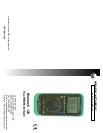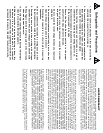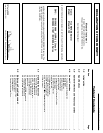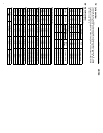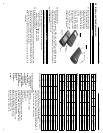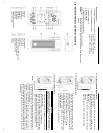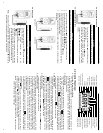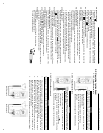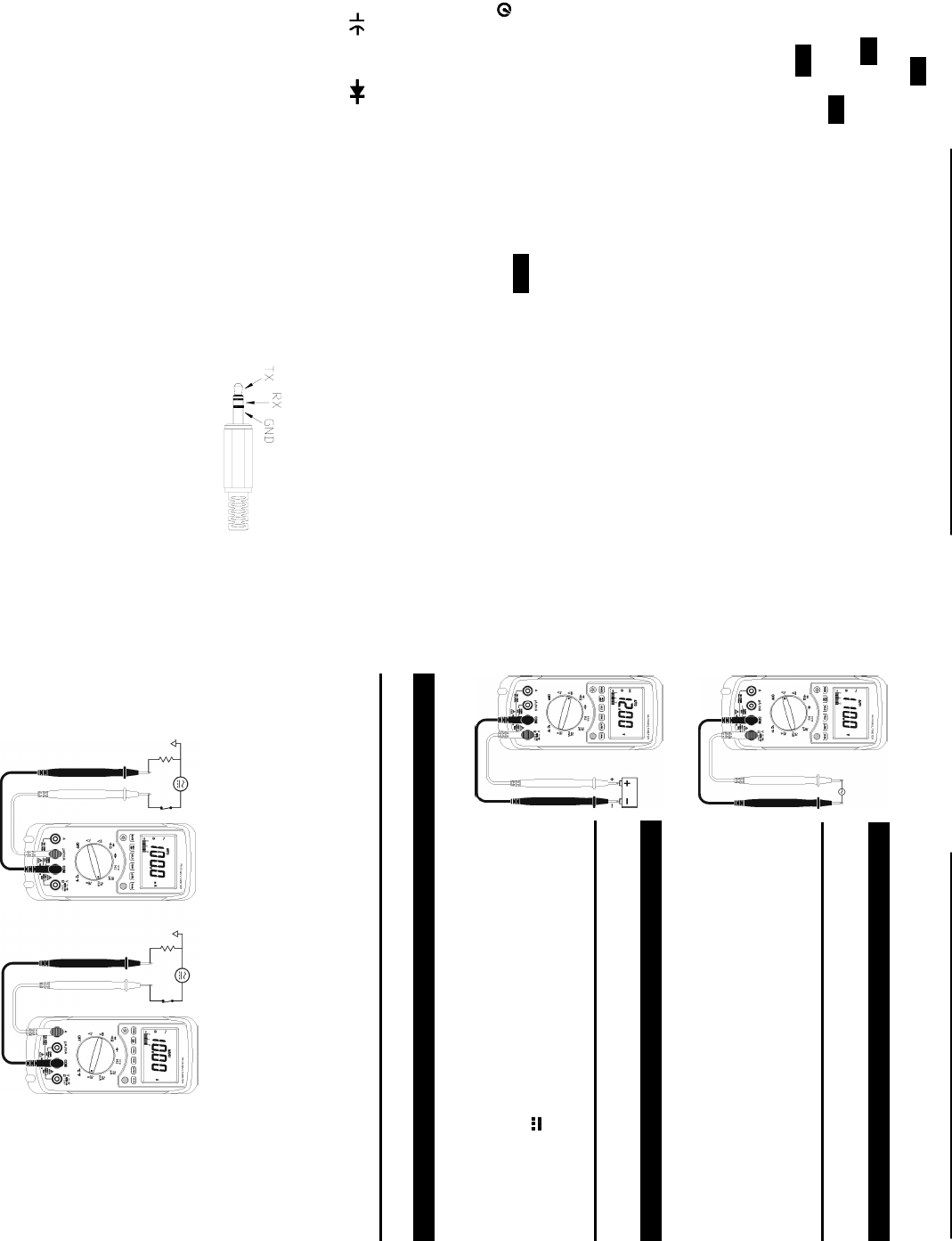
MODEL 120 TRUE RMS MULTIMETER
5
4.6 Relative Operation
Pressing the
'REL
button zeroes the display and internally stores the present reading as
a reference for subsequent measurements. The display now shows the difference
between the stored value and the new reading.
Press the
'REL
button again to hold the Relative reading. The
‘'REL’
symbol in the display
will flash in the Relative Hold mode.
Press and hold the
'REL
for 1 second to exit the Relative mode.
4.7 Voltage or Current to Frequency Function
Press the
VA-Hz
button in any Voltage or Current measurement mode to enter the
Frequency Counter mode with automatic range selection.
4.8 Backlight Button
The round yellow button with a ‘Sun’ logo turns the display backlight ON and OFF. The
backlight automatically shuts off after 30 seconds to conserve battery power.
4.9 Second Function Button
The solid blue button selects the second functions printed in blue on the instrument scale
around the rotary function selector.
The secondary functions available with this button are:
x In the Resistance position, the first press of the blue button selects the Continuity with
beeper function. The second push of this button selects the Diode Test function.
x In the Frequency position, the blue button selects the RPM mode.
x In any of the Current measuring modes, the blue button toggles between AC and DC.
x In the Temperature function, the blue button toggles between °C and °F.
4.10 Auto Power Off
By default, the instrument powers on in the ‘Auto Power Off’ mode and will automatically
shut off 30 minutes after the last key operation or optional RS232 communication.
To disable this feature, press and hold the
RANGE
button and then power on the meter.
The will not be displayed, indicating that ‘Auto Power Off’ is disabled.
4.11 20A Measuring Connector
This instrument is capable of measuring up to 10 amps continuously, or up to 20 amps
for no more than 30 seconds. Connect the positive (red) test lead to this connector.
4.12 µA/mA Measuring Connector
Current measurements up to 400mA are best measured via this connector. This
connection is internally fused at 400mA for protection of the instrument.
4.13 COM Measuring Connector
This connector is the negative (black) lead connection for all measurements.
4.14
V, Hz, , RPM, , ȍ, TEMP Measuring Connector
For all voltage, frequency, capacitance, RPM, diode test, resistance or temperature
measurements, connect the positive (red) test lead to this connector.
4.15 Digital Output
The RS232 Digital Output is a 9600 bps N 81 serial interface.
RX is a 5V normally high input port.
TX is a 5V normally high output port.
MODEL 120 TRUE RMS MULTIMETER
6
5.0 Operating Instructions:
5.1 AC Voltage Measurements
WARNING
Maximum Input Voltage is 750VAC. To avoid electrical shock hazard and/or
damage to this instrument, do not attempt to make any voltage measurement
that may exceed this limit.
1. Connect the red test lead to the
‘V’
jack and the black test
lead to the
‘COM’
jack.
2. Set the Function Selector switch to the V~ range
.
3. Connect the test leads in parallel with the circuit being
measured.
4. Read the measured voltage on the instrument display.
5.2 DC Voltage Measurements
WARNING
Maximum Input Voltage is 1000VDC. To avoid electrical shock hazard and/or
damage to this instrument, do not attempt to make any voltage measurement
that may exceed this limit.
1. Connect the red test lead to the
‘V’
jack and the black test
lead to the
‘COM’
jack.
2. Set the Function Selector switch to the V range
.
3. Connect the test leads in parallel with the circuit being
measured.
4. Read the measured voltage on the instrument display.
5.3 AC/DC Current Measurements
WARNING
To avoid injury, do not attempt a current measurement if the open circuit voltage exceeds the rated voltage of
this instrument.
1. If the current to be measured is unknown, connect the red lead to the
‘A’
jack. If it is
known or has been determined that the current is 400mA or less, connect the red
lead to the
‘µA/mA’
jack. Connect the black lead to the
‘COM’
jack.
2. Set the Function Selector switch to the current range corresponding to the jack
being used and press the blue button to select AC or DC.
3. Remove power from the circuit to be measured and connect the instrument in
series with this circuit. Connect the black lead to the negative (-) side and the red
lead to the positive (+) side being measured.
4. Apply power to the circuit and read the measured current on the instrument display.
µA/mA Measurement Amp Measurement



